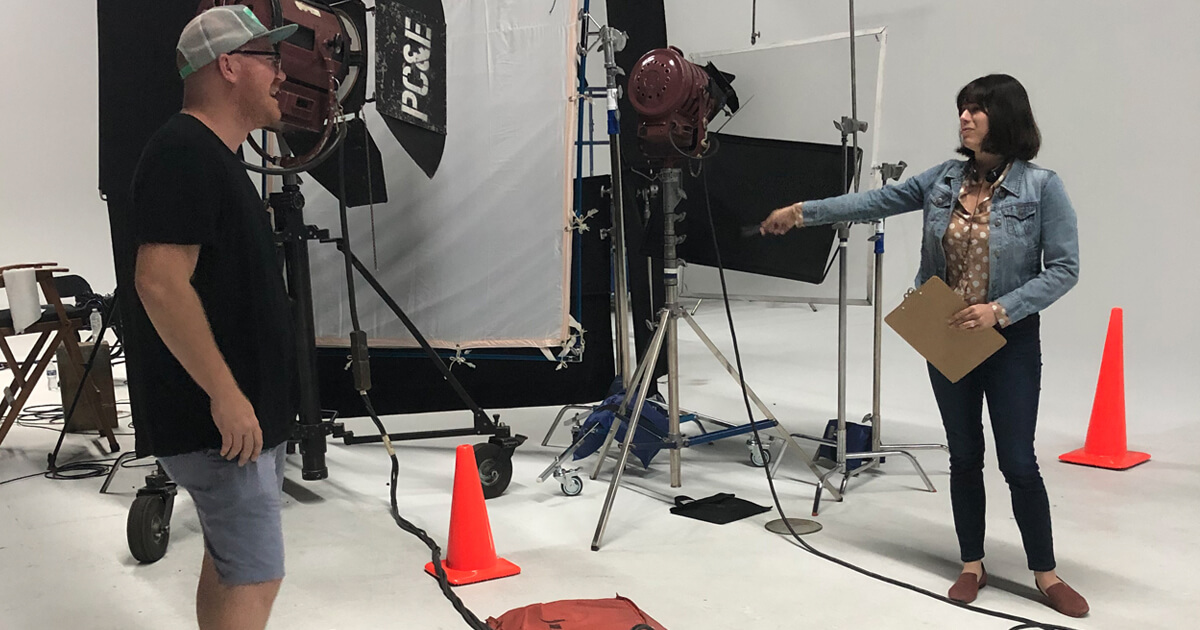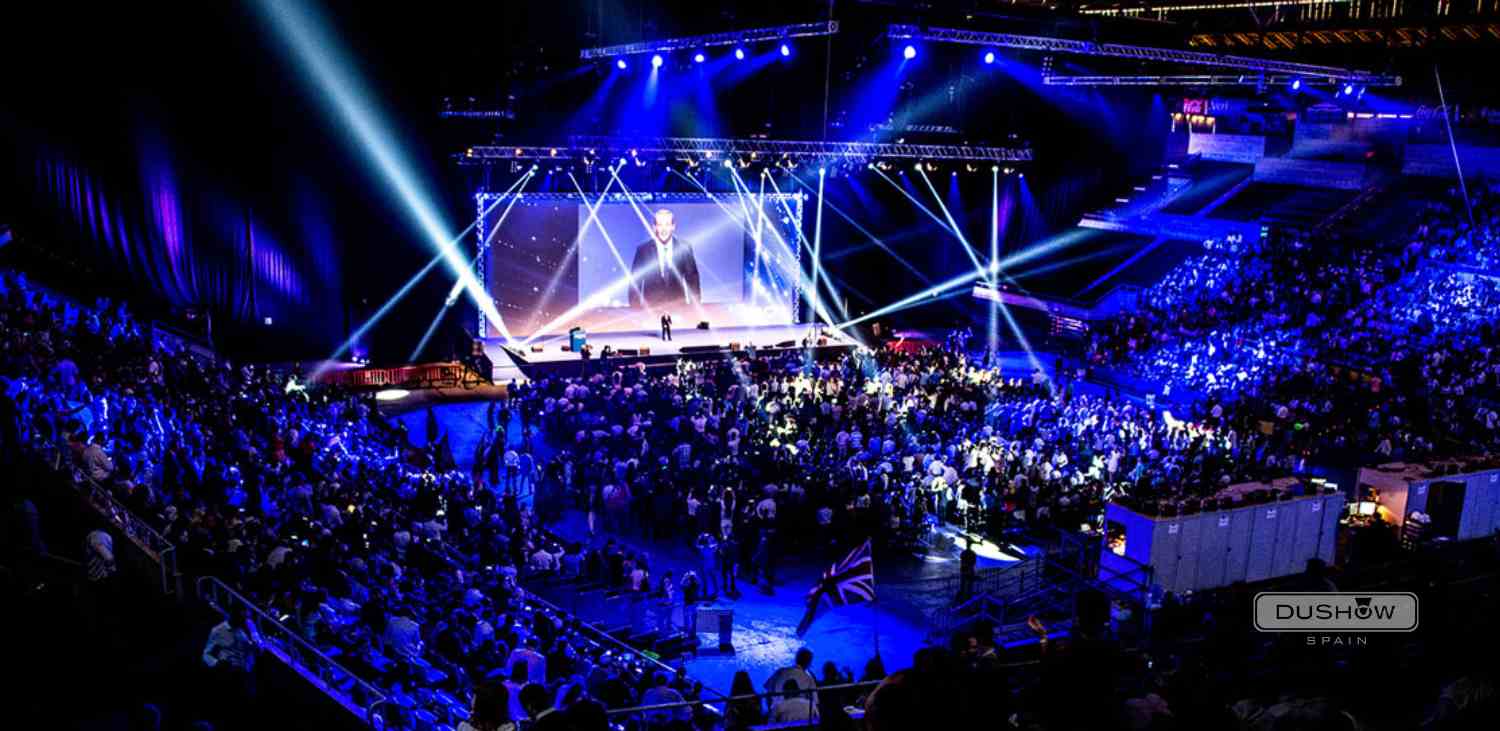Comprehending Event Production: Why It Is Very Important for Effective Gatherings
Event production plays an important function fit effective events. It involves careful planning, control, and implementation to guarantee every detail straightens with the event's vision. This process not just improves attendee experiences however additionally facilitates significant links amongst individuals. Understanding the details of event production can substantially impact the overall result. What are the crucial elements that add to a successful event, and exactly how can they be properly handled?
The Duty of Event Production in Producing Remarkable Experiences
Although lots of factors contribute to the success of an occasion, event production plays a critical role in crafting memorable experiences. This complex procedure encompasses various elements, consisting of planning, logistics, and execution. Reliable event production warranties that every detail straightens with the overall vision, producing a smooth circulation that astounds guests. By collaborating timelines, taking care of resources, and overseeing technical facets, event manufacturers develop a structure for impactful experiences.Moreover, they curate settings that reverberate with the target market, improving engagement and emotional link. From selecting suitable locations to integrating cutting-edge technology, the options made during production considerably influence how participants view and keep in mind the event. By prioritizing quality and attention to information, event production changes average celebrations right into extraordinary minutes, leaving lasting perceptions. Eventually, the proficient orchestration of these elements defines the significance of an event, showcasing the relevance of professional event production in accomplishing remarkable results.
Key Elements of Successful Event Production
Efficient event production depends upon a number of key components that ensure success. Preparation and coordination develop a strong structure, while technical configuration demands deal with logistical demands. Additionally, applying audience interaction strategies improves the total experience, making the event unforgettable.
Preparation and Sychronisation
Planning and sychronisation work as the backbone of effective event production, ensuring that every information aligns flawlessly to produce an unforgettable experience. Effective planning involves establishing a clear vision and goals, while coordination entails the careful company of logistics, schedules, and resources. A well-defined timeline is crucial, leading all stakeholders via crucial turning points and jobs. Communication plays a critical role, fostering partnership among staff member, suppliers, and place personnel. Routine conferences and updates help to deal with difficulties promptly, guaranteeing that everyone continues to be aligned with the event goals. Inevitably, an organized approach to preparation and sychronisation not just enhances effectiveness but likewise considerably adds to the overall success and enjoyment of the event for guests and coordinators alike.
Technical Arrangement Demands
An effective event counts heavily on its technical configuration demands, which incorporate vital elements such as audio-visual devices, illumination, hosting, and connection. Audio-visual tools consists of microphones, audio speakers, and projectors, making certain that presentations and performances are provided plainly. Correct lighting enhances the setting and highlights crucial locations, while organizing provides the necessary platform for speakers and entertainers. Connectivity, consisting of Wi-Fi and electrical accessibility, is important for seamless communication and innovation combination. Each part must be meticulously intended and performed, customized to the event's specific needs. Poor technological setups can lead to disruptions, negatively impacting the general experience for guests, emphasizing the value of complete preparation and attention to information in event production.
Target Market Involvement Approaches

The Importance of Planning and Coordination
Preparation and control are crucial to the success of any kind of event production. Effective timeline management, source allocation methods, and group interaction dynamics play vital roles in ensuring that all components collaborated perfectly. Without a structured approach to these elements, events take the chance of dealing with hold-ups, spending plan overruns, and miscommunication among staff member.
Effective Timeline Management


While effective event production commonly depends upon imagination and execution, reliable timeline management continues to be a vital element that can not be forgotten. A well-structured timeline works as the backbone of any kind of event, making sure that each stage is implemented in a timely fashion. It allows for the coordination of different tasks, from place configuration to guest arrivals, while stopping possible bottlenecks. By clearly detailing due dates and duties, event coordinators can preserve focus and adapt to unexpected obstacles. Additionally, a carefully crafted timeline fosters interaction among employee, advertising accountability and cooperation. Inevitably, reliable timeline management not only boosts functional efficiency but additionally contributes considerably to the overall success and smooth execution of the event, leaving guests with a remarkable experience.
Resource Allocation Methods
Efficient source appropriation strategies are important for the successful execution of any kind of event. Proper preparation permits event coordinators to identify and distribute resources, such as financial resources, workers, and products, in a fashion that optimizes effectiveness. By evaluating the details needs of each element of the event, coordinators can prioritize tasks and designate resources as necessary. Coordination among different divisions guarantees that all components, from dealing with audiovisual requirements, are sufficiently sustained. This strategic method not just minimizes waste however also boosts the general experience for participants. In addition, expecting possible difficulties and having backup strategies in location permits smoother operations. Eventually, efficient resource allowance contributes considerably to achieving event goals and assuring a remarkable event.
Team Interaction Characteristics
Just how can smooth interaction amongst staff member change the event production process? Reliable communication is important for coordinating tasks, sharing updates, and resolving difficulties in real-time. When employee participate in open discussion, they can swiftly recognize possible concerns and create services collaboratively, lessening hold-ups and misunderstandings. This vibrant fosters a cohesive atmosphere where everybody recognizes their functions and duties, resulting in a much more integrated initiative. Additionally, normal check-ins and comments loops improve accountability and assurance alignment with the event's objectives. By focusing on interaction strategies, teams can simplify process, strengthen spirits, and eventually raise the total quality of the event. Effective celebrations hinge on the capacity to communicate effectively, making it a crucial component of event production.
Enhancing Participant Interaction Through Creative Style
Creative layout plays Click Here a vital duty in improving guest engagement at events, as it cultivates an immersive setting that astounds individuals' focus. By incorporating ingenious visuals, interactive components, and thematic decoration, event organizers can develop memorable experiences that reverberate with attendees. Thoughtful format designs advertise movement and expedition, urging visitors to connect with display screens and each other.Incorporating innovation, such as augmented truth or live polling, further improves the experience, enabling real-time responses and interaction. Additionally, sensory aspects like lighting, noise, and fragrance can evoke emotions and produce a much more engaging atmosphere.The use narration via style aids convey the event's function and message, making it extra relatable for attendees. Eventually, imaginative layout not only improves involvement yet additionally strengthens links among participants, leaving a long lasting impression that expands beyond the event itself. This calculated technique to design is important for successful events.
Taking care of Logistics for a Smooth Execution
While the excitement of an event can draw guests in, handling logistics is crucial to secure a smooth implementation. This involves thoroughly collaborating numerous components, from place option and format to event catering and transport. Reliable logistics monitoring assures that all components align, enabling a smooth circulation from registration to the verdict of the event.Additionally, a clear interaction strategy among all stakeholders is imperative. This includes staff, vendors, and volunteers, who must be notified of their duties and obligations. Preparing for potential difficulties, such as equipment failing More hints or unforeseen climate condition, can additionally boost the event's success.Creating a thorough timeline aids maintain the group on course and permits timely changes. Ultimately, well-managed logistics not just assist in an enjoyable experience for participants however additionally mirror the professionalism and reliability and dependability of the organizers, contributing to the overall success of the event.

The Influence of Technology on Event Production
What function does modern technology play in forming modern-day event production? Modern technology has become a foundation of effective event production, boosting both planning and implementation procedures. From innovative registration systems to interactive applications, technology improves participant management and improves involvement. Virtual event systems allow organizers to reach bigger target markets, breaking geographical barriers and facilitating hybrid events that integrate in-person and on the internet experiences.Additionally, audiovisual technologies, such as high-def screens and sound systems, elevate the high quality of discussions and efficiencies, guaranteeing an unforgettable experience for guests - event production charlotte. Social media site integration enables real-time feedback and interaction, cultivating community involvement in the past, during, and after the event. Data analytics tools help coordinators in checking individual actions and choices, enabling tailored experiences that reverberate with varied target markets. Generally, the combination of innovation in event production not just improves operational efficiency yet additionally improves participant experiences, inevitably adding to the success of the event
Evaluating Success: Gauging the Outcomes of Your Event
Success in event production depends upon reliable examination, which includes gauging a variety of results to analyze the overall effect of an occasion. To achieve this, organizers can use both qualitative and quantitative metrics. Measurable measures might include participation figures, ticket sales, and earnings produced, while qualitative assessments may include attendee complete satisfaction surveys and responses forms.Additionally, assessing social media sites engagement and media coverage can provide understandings right into the event's reach and brand name influence. Contrasting these metrics against predefined objectives assists determine if the goals were met.Furthermore, post-event debriefs with the planning group can reveal lessons discovered and locations for enhancement. By methodically assessing these outcomes, event manufacturers can enhance future events, making sure continual growth and success. Eventually, a comprehensive examination not only highlights achievements however additionally educates critical decisions for succeeding events, promoting a culture of quality in event production.
Frequently Asked Inquiries
What Qualifications Should an Event Producer Have?
Event producers ought to possess strong business skills, creative thinking, and reliable communication capacities. A background in task management, budgeting, and settlement is important. Appropriate qualifications and experience in varied event kinds even more boost their qualifications.
Exactly How Can I Reduce Event Production Prices Successfully?
To effectively decrease event production prices, one can enhance supplier option, discuss agreements, utilize internal resources, hop over to these guys focus on essential aspects, implement innovation for efficiency, and check out sponsorship possibilities to offset expenditures without jeopardizing quality.
What Are the Usual Difficulties in Event Production?
Usual challenges in event production include spending plan constraints, logistical coordination, supplier administration, time limitations, participant interaction, technical difficulties, and unanticipated circumstances - event production charlotte. Each element can considerably affect the general success and smooth execution of the event
Just how Do I Choose the Right Venue for My Event?
Selecting the ideal place includes taking into consideration variables such as area, capacity, amenities, and budget. Additionally, examining access and ambiance guarantees the chosen room straightens with the event's objectives and improves the general participant experience.
What Is the Typical Timeline for Planning an Occasion?
The typical timeline for preparing an event differs, however usually consists of stages such as principle development, location choice, vendor sychronisation, promotion, and last prep work, frequently spanning numerous months to assure a successful execution.